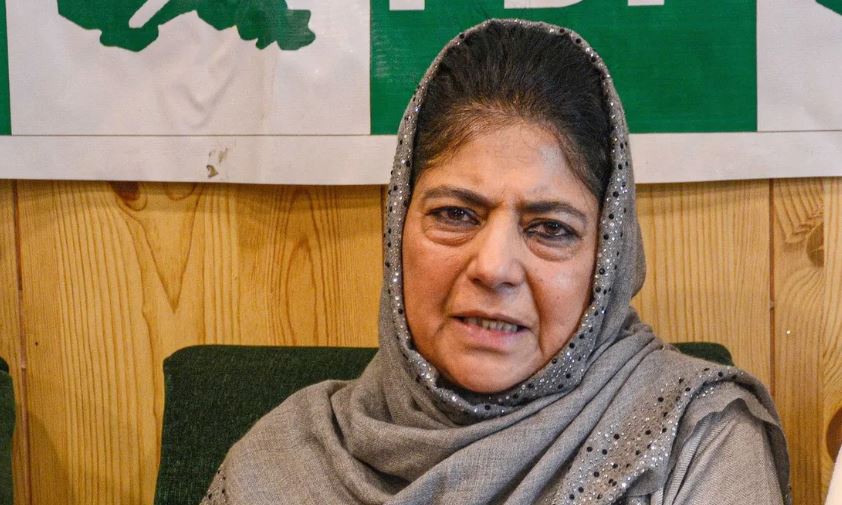Kashmir Martyrs’ Day: Allegations of House Arrests by Political Leaders
On July 13, a day historically observed as Kashmir Martyrs’ Day to honor those killed during protests in 1931, several political leaders in Jammu and Kashmir, including PDP chief Mehbooba Mufti and People’s Conference chairman Sajad Lone, alleged being put under house arrest. They claimed these measures were intended to prevent them from visiting the ‘martyrs’ graveyard’ in Srinagar.
Allegations of House Arrests
Mehbooba Mufti, former Chief Minister of Jammu and Kashmir, voiced her frustration over being confined to her residence in Khimber, stating that the gates were locked to prevent her from paying homage at Mazar e Shuhada. She criticized the restrictions as an attempt to suppress Kashmiri sentiments and memories, particularly following the changes brought about by the abrogation of Article 370 in 2019.
Political Reactions
People’s Conference chairman Sajad Lone questioned the rationale behind the authorities’ actions, emphasizing the significance of allowing people to commemorate their historical heroes freely. Other leaders, including Nasir Aslam Wani of the National Conference, also reported similar restrictions, condemning the interference in their plans to honor the martyrs.
Context and Controversy
In recent years, the observance of July 13 as a public holiday and the grand official function commemorating the martyrs have seen changes, particularly after the removal of its status as a gazetted holiday in 2020. This year, no official function was held, and local leaders faced restrictions on gathering at the martyrs’ graveyard, citing concerns over public safety and maintaining law and order.
Future Implications
Despite the challenges faced this year, leaders like NC’s Omar Abdullah expressed determination to mark future Kashmir Martyrs’ Days with solemnity and respect, anticipating changes in administration policies following the upcoming assembly elections mandated by the Supreme Court.
Conclusion
The controversy surrounding Kashmir Martyrs’ Day reflects ongoing tensions and political dynamics in Jammu and Kashmir. As leaders demand the freedom to honor their history and commemorate sacrifices, the situation underscores deeper issues of governance, democracy, and regional sentiments amidst changing political landscapes.
Summary
The controversy surrounding Kashmir Martyrs’ Day on July 13 centers on allegations by political leaders in Jammu and Kashmir, including Mehbooba Mufti and Sajad Lone, who claim they were placed under house arrest to prevent them from visiting the martyrs’ graveyard. This day commemorates the 1931 protests where 22 Kashmiris were killed, historically marked as a public holiday until changes post-2019. Leaders criticize these restrictions as attempts to suppress Kashmiri sentiments amidst ongoing political tensions and upcoming elections mandated by the Supreme Court.
Key Learning Points
| Learning Points | Description |
|---|---|
| House Arrest Allegations | Political leaders claim being confined to their residences on Kashmir Martyrs’ Day. |
| Political Criticism | Leaders criticize restrictions, citing suppression of historical commemoration. |
| Historical Context | July 13 marks the anniversary of protests in 1931, significant in Kashmir’s history. |
| Administrative Changes | Changes in official observances and policies post-2019 and 2020 continue to impact commemorations. |
| Future Expectations | Leaders anticipate policy shifts following mandated assembly elections in Jammu and Kashmir. |
Soumya Smruti Sahoo is a seasoned journalist with extensive experience in both international and Indian news writing. With a sharp analytical mind and a dedication to uncovering the truth, Soumya has built a reputation for delivering in-depth, well-researched articles that provide readers with a clear understanding of complex global and domestic issues. Her work reflects a deep commitment to journalistic integrity, making her a trusted source for accurate and insightful news coverage.



